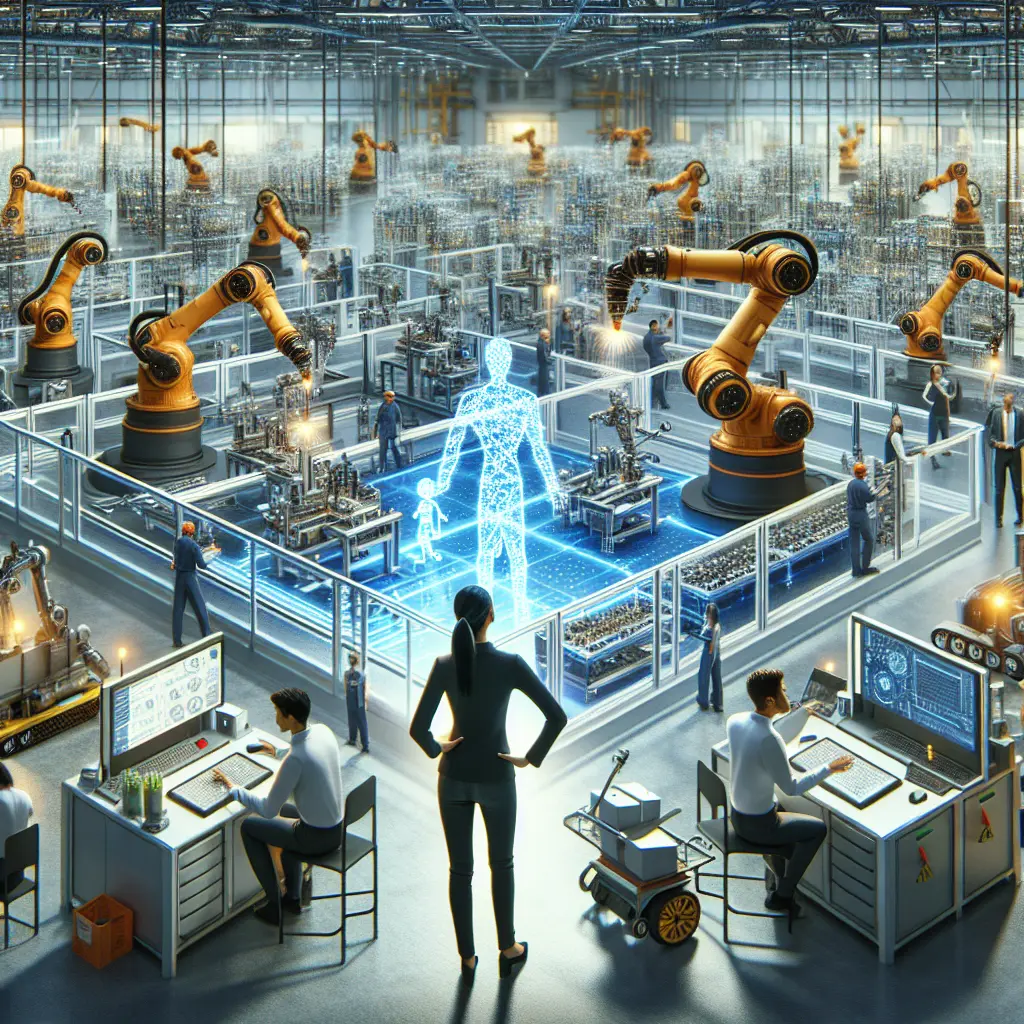
In today's rapidly evolving industrial landscape, advancements in robotics are revolutionizing smart manufacturing, heralding a new era of industrial automation. As we stand on the brink of Industry 4.0, the integration of robotics in manufacturing is transforming traditional production lines into intelligent manufacturing systems. These smart factories utilize cutting-edge robotics technology and AI in manufacturing to enhance efficiency and drive unparalleled productivity.
Robotics and AI: A Synergistic Partnership
The synergy between robotics innovation and AI is paving the way for automated production processes that are more efficient, reliable, and adaptable than ever before. Robotics integration is not only optimizing existing operations but also creating smart production lines capable of rapid adaptation to market demands. As digital manufacturing becomes more prevalent, the role of robotics technology in smart manufacturing is expanding, promising a future where robotic process automation becomes a cornerstone of industrial practices.
The Future of Manufacturing
The future of manufacturing is being shaped by advanced robotics systems that seamlessly blend with AI, enabling applications that were once thought impossible. This robotics and AI partnership is essential for the development of intelligent manufacturing systems that prioritize efficiency and innovation. In this context, the rise of smart factories and automated production lines signifies a shift towards a more digital, interconnected industrial environment.
Transforming Industries with Robotics
Robotics in manufacturing is not just about automation; it's about creating a dynamic ecosystem where human ingenuity meets advanced technology to achieve unprecedented levels of efficiency. With robotics innovation at the forefront, manufacturers are better equipped to address complex challenges, streamline operations, and stay competitive in an increasingly digital world.
Transforming Supply Chains with Robotics and AI
One striking example of how robotics is revolutionizing supply chains is the initiative by PepsiCo. By employing robotics, AI-powered crop planning, satellites, and sensors, PepsiCo enhances its supply chain from farm to factory line. This approach exemplifies how robotics integration can streamline operations and boost efficiency within smart factories.
AI-Driven Innovations in the Food Industry
The food service industry is also witnessing significant changes due to advancements in robotics and AI. Taco Bell's implementation of AI-driven systems across hundreds of drive-thru locations aims to revolutionize customer interactions and service speed. This trend highlights how automated production lines are not only enhancing efficiency but also redefining customer service standards.
Overcoming Barriers in Manufacturing
While large enterprises are swiftly adopting robotics technology, small-to-midsize manufacturers (SMMs) have been slower to embrace Industry 4.0 innovations. However, there is a growing movement to overcome this hesitancy by educating SMMs about the benefits of advanced automation platforms. By understanding and adopting these technologies, SMMs can increase their competitiveness and participate actively in the digital manufacturing revolution.
Strategic Leadership in Robotics Advancements
Leadership plays a critical role in steering companies toward embracing robotics innovations. For example, Brian Niccol's transformation of Chipotle serves as a testament to how strategic leadership can guide organizations in adopting advanced technologies effectively. As he assumes leadership at Starbucks, Niccol's expertise could further drive the company's integration of robotics in manufacturing.
Strategic Expansion through Acquisitions
In the realm of industrial automation, strategic acquisitions are pivotal for expanding capabilities. Covariant, a pioneer in AI software for industrial robots, has garnered interest from major players like Amazon. Such moves signify the increasing importance of robotics innovation in enhancing intelligent manufacturing systems.
Pioneering Figures in Robotics and AI
Agility Robotics CEO Peggy Johnson is part of a cohort of industry leaders championing advancements in automation and AI. Their contributions are crucial as we transition to a future where robotics for industry applications become increasingly sophisticated and widespread.
The Evolution of Manufacturing Skills
As automation becomes integral to Industry 4.0, there is an increasing need for specialized knowledge and skills. Workers must adapt to new roles that require expertise in robotics integration and digital manufacturing processes. This shift highlights the evolving nature of work within smart factories.
Addressing Job Displacement Concerns
The rise of robotics in manufacturing brings concerns regarding job displacement and its socio-economic implications. It is vital to consider how these technological advancements can coexist with human labor, ensuring a balance between innovation and workforce stability.
Conclusion: Embracing Robotics for a Smarter Manufacturing Future
The advancements in robotics for smart manufacturing represent a profound shift toward creating dynamic ecosystems where human creativity meets advanced technology. As organizations continue to adopt these innovations, they are better positioned to address complex challenges and maintain competitiveness in an increasingly digital world.
Reflect on how these innovations might impact your industry or life. Share your thoughts and experiences in the comments below—your insights could inspire others on their journey toward smarter manufacturing.
Together, we can navigate the challenges and opportunities that lie ahead as we harness the power of robotics to shape a more efficient, dynamic, and human-centric future in manufacturing.
Warm regards,
Nora Pennington